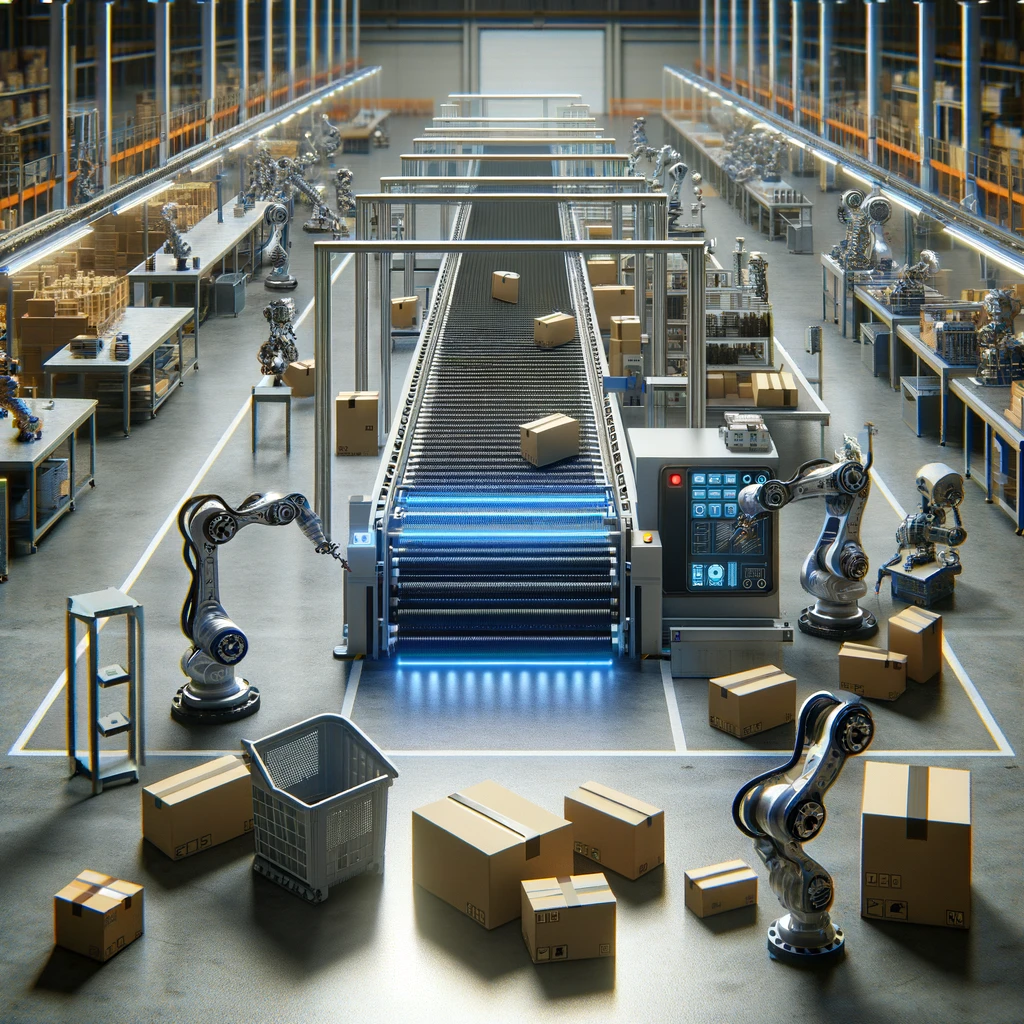The Future of Item Management with AI
By: ChatGPT
Originally Generated: November 11, 2023
Introduction:
The advent of artificial intelligence (AI) has brought about significant changes in many fields, and item categorization and sorting is no exception. AI systems, through their ability to analyze and process large datasets, have made it possible to organize items in various contexts, from household kitchens to industrial setups, with remarkable efficiency and accuracy. This article explores the role of AI in categorizing and sorting items, discussing both current applications and potential future developments.
AI in Household Item Organization
AI systems are increasingly used to categorize and sort household items, helping to create more organized and efficient living spaces. One of the most relatable applications is in organizing kitchen inventories. Imagine a modern kitchen where every item is neatly organized and labeled, with AI technology suggesting storage locations and categorization based on item types. This not only enhances the ease of locating items but also contributes to better space management.

Benefits of AI in Household Organization
AI-driven organization systems can learn from user behavior and adjust recommendations over time, making them more personalized and efficient. For instance, an AI system could suggest rearranging kitchen items based on frequency of use or seasonal needs. These systems not only save time but also reduce the cognitive load of managing household items.
The Future of AI in Home Management
As AI technology continues to evolve, we can expect more advanced and intuitive home management systems. These systems could integrate with other smart home devices, leading to a fully automated and seamlessly organized home environment. AI could also assist in inventory management, alerting homeowners when supplies are low or suggesting shopping lists based on usage patterns.
AI in Industrial and Commercial Sorting
In industrial and commercial contexts, AI has shown great potential in sorting and categorizing items at a scale and speed unattainable by humans. For instance, Roboflow empowers developers to build powerful computer vision models that can be applied in various industries, including agriculture for produce grading and sorting【27†source】. Another innovative application is the use of AI for document sorting, where it is employed to analyze and recognize the content for appropriate classification, thereby increasing efficiency and accuracy.

Enhancing Efficiency and Accuracy
AI’s ability to process vast amounts of data rapidly makes it ideal for sorting and categorizing items in industrial settings. For example, GarbageNet, an AI system, demonstrated a 97% accuracy rate in sorting 43 different types of garbage, outperforming other garbage-sorting AIs. This level of accuracy not only enhances efficiency but also contributes to more sustainable waste management practices.
Future Prospects in AI-driven Sorting
The future of AI in industrial and commercial sorting holds immense potential. We can anticipate more sophisticated AI systems capable of handling increasingly complex sorting tasks, potentially leading to fully automated warehouses and distribution centers. Furthermore, the integration of AI with robotics and other technologies could revolutionize supply chain management, leading to more streamlined and efficient processes.
AI in Data Classification
AI data classification plays a crucial role in managing digital information. By categorizing data into predefined classes or labels, AI systems help create order from digital chaos. This process is crucial for efficiently routing, processing, and interpreting large volumes of data.

Impact on Digital Management
AI classification systems have transformed the way we manage digital content. From organizing files and documents to sorting emails and digital media, AI-driven classification enables more efficient and effective management of digital resources.
The Future of AI in Data Management
Looking ahead, AI is poised to play an even more significant role in data management. We can expect AI systems to become more adept at understanding context and semantics, leading to more nuanced and effective categorization. This evolution will be particularly important in managing the ever-growing volumes of data generated in the digital age.
References
- “AI for Organizing – Categorizing and Managing Data at Scale” [Link](https://www.datasciencecentral.com/ai-for-organizing-categorizing-and-managing-data-at-scale/_
- “Document Sorting using AI - Nanonets” Link
- “New AI Proves to Be a Trash Sorter Extraordinaire” Link
- “AI data classification” Link
- “Introduction - Roboflow Docs” Link
- “Computer Vision for Agriculture with Roboflow” Link